Kids, it's OK to find your own way in life
Updated: 2014-08-06 07:19
By Associated Press in New York (China Daily)
|
||||||||
In Todd Parr's world, it's OK to wear your undies on your head, spill your milk or eat mac-and-cheese in the bathtub.
Most of all, it's OK to be yourself.
Inclusion and acceptance are Parr's mainstays in more than 30 quirky picture books for young kids, including It's Okay to Make Mistakes, out this month from Little, Brown and Co.
Parr, 52, relies on playful, brightly colored drawings and easy-to-understand messages to win over the age 4-to-6 set, along with their teachers and parents. In today's competitive swirl of perfectionism, it's Parr who declares it OK to draw outside the lines, celebrate your big hair and feel lonely sometimes.
The artist and writer lives in the US city of Berkeley, California, and worked as a flight attendant for 15 years while he got his career off the ground after leaving home in Rock Springs, Wyoming, soon after high school graduation.
A conversation with Todd Parr:
You've been called the artist who never grew up. Is that your secret to reaching kids?
It's the best answer I have when people say, 'Well you don't have kids, so how do you relate to kids?' My childhood is so vivid to me, and my dad was very funny. There's a playfulness and simplicity still within me.
You once got an F in art. What did the teacher say about that?
I was a difficult student. I struggled a lot. I continually expressed myself in art in ways that were not being asked of me and I got an F for not doing what I was told.
People ask, 'What would you say to your art teacher now who said you should pursue a different career?' He passed away years ago but I think the only thing I would have said is why not point out any positives in what I was doing, like, 'Todd, you draw really great circles, although that's not what I asked you to do.'
Art was the one interest I had, but I didn't have the confidence. It took me years.
You entered a drawing of Snoopy in a contest when you were a kid and your dad said, 'That's great but you're not allowed to trace,' when you hadn't. How did that feel?
It was so good that he thought I had traced it, but I was disappointed. I was so deflated that I had expressed myself in such a way that I was so proud of and I wanted to hear, 'That's really good.'
You were a gay kid living in small-town Wyoming. How did your childhood impact the content of your books?
I felt that I didn't belong where I grew up. I was so excited by what I thought was this big world that was out there waiting for me, where you could just be whoever you were. You could wear whatever you wanted. I felt like I was trapped in a place where basically you went to school, you went into certain types of jobs, and you got married and you had kids.
There weren't options to be different. My dad has said if he used the term 'wanting to be an artist' with his dad and mom they would have kicked him out of the house.
You take on a lot of tough subjects in a simple, straightforward style. Are other books for kids too preachy, busy or condescending?
The only self-imposed directive I had in the beginning was to stay away from preachy, teachy or new agey. My artwork originally led to a proposal from an editor who said, 'Hey, have you ever thought about writing children's books?' I said, 'No, I haven't. I did horrible in school. I barely made it out, so no. Books are for smart people.'
I knew that, whatever I did, it had to be fun and edgy and simple so that kids could be like, 'I can draw just like him.' I knew I would need some humor in there. Somebody once said, 'Oh I thought you were a 6-year-old writing these books,' and I thought, 'Oh god, that's not good,' but now I love that because that's what kids see and hopefully go, 'I can do that.' You don't have to beat them over the head.
No one was doing these kinds of books. When I started, It's OK to Be Different was in the self-help section of Borders. No one knew what to do with them. People were like, 'Where are the bunnies and the bears and the pastels?'
Why do parents love your books so much?
I always try and think about how a grandma is going to feel reading this book, like my grandmother read to me every night, or a mom and dad are going to read this book, and I want them to laugh. I want them to feel warm when they're done.
I hope parents can really empower kids to believe in themselves, but I try to think about what parents are taking away from the books, too, to help them realize how much they love their kids.
(China Daily 08/06/2014 page19)
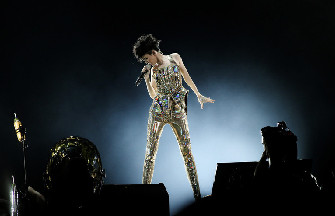
 Star Stefanie Sun holds concert in Beijing
Star Stefanie Sun holds concert in Beijing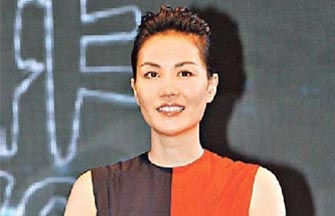
 Faye Wong's manager refutes star's drug rumors
Faye Wong's manager refutes star's drug rumors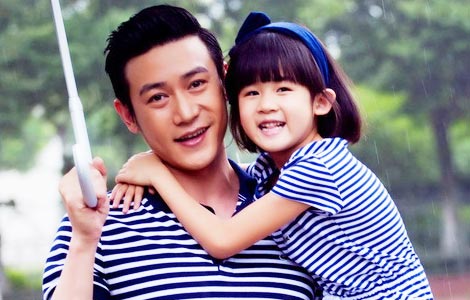
 Lu Yi and daughter Bei Er pose for street snaps
Lu Yi and daughter Bei Er pose for street snaps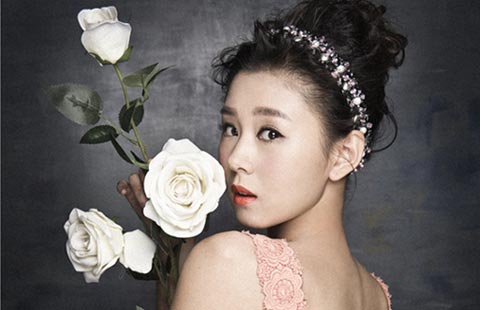
 Photoshoots of actress Li Xiaomeng
Photoshoots of actress Li Xiaomeng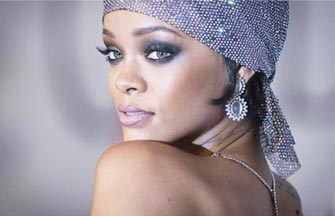
 Council of Fashion Designers of America Awards
Council of Fashion Designers of America Awards
 Fan Bingbing, first Chinese actress in Barbie Hall of Fame
Fan Bingbing, first Chinese actress in Barbie Hall of Fame
 Awarding ceremony of 2014 hito Pop Music held in Taipei
Awarding ceremony of 2014 hito Pop Music held in Taipei
 Zhao Liying's photo shoot for Children's Day
Zhao Liying's photo shoot for Children's Day
Most Viewed
Editor's Picks

|

|

|

|

|

|
Today's Top News
Barrier lakes pose threat in quake-hit Ludian
2 Canadians probed in theft of State secrets
Envoy dismisses building freeze in S. China Sea
Microsoft gets warning: Don't block watchdog
New York tests possible Ebola victim
Premier Li visits Yunnan quake site
373 dead as strong quake jolts SW China
US ready to help China in quake relief
US Weekly

|

|








